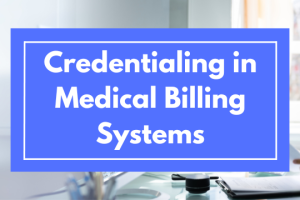Keys to Establishing a Positive Reputation for Your Private Practice
If you’re worried about your private practice reputation, you’re not alone. We live in a world where everyone is happy to sue, complain, and gather the digital masses about a bad experience, so reputation is still a big part of practice management. It’s going to be up to you to establish and maintain a strong reputation that promotes the type of impression that you want to make on your patients and others.
Most providers put forth a significant amount of effort to care for their patients and deliver the level of service that they deserve. Unfortunately, even the best efforts can go unappreciated for even the simplest mistakes or misgivings. You’re familiar with the phrase “you don’t get a second chance to make a first impression”—sure, it’s cliché to an extent, but it’s true. It’s far easier to be proactive in building a reputation for your practice than to try to use reputation management methods to recover your professional image after bad press or publicity.
What Is Reputation Management?
Reputation management is the process of keeping a provider or practice’s reputation in good standing. As part of an overall marketing and outreach strategy, managing your reputation is critical. There are several approaches that you can use to create a strong reputation, but as discussed above, it’s best to be proactive. Crisis management is a defensive position that rarely ends in the favor of the provider, which is why a proactive approach is generally preferred.
Proactive vs. Reactive Approaches
Being proactive as opposed to being reactive gives you the chance to preempt potential issues and help avoid common reputation pitfalls that plague many private practices that go into the process blindly. A successful practice will be one that can use reputation management to improve the perception of the business both in the eyes of patients and stakeholders alike, as well as how the business is perceived by the competition and others. If you wait until something happens and you have to react to fix your reputation, you could lose valuable points with your existing patients and risk losing out on potential new patients, as well.
There will inevitably be times when you do have to react to something that happened with your reputation, whether it is a bad review, a question or concern, or even an accusation that your practice isn’t living up to its potential in some way. However, this should be the exception and not the rule. After all, if you’ve taken the time to build a strong reputation in the first place, you’ll have less to recover from in the future.
Reviews, Referrals, and Word-of-Mouth Marketing
Perhaps one of the most effective ways to build a strong reputation for your private practice is through your patients and partners. Get reviews and referrals where you can—you can even consider creating an incentive program for new patient referrals and the existing clients who refer them if you want to drive up your referral business. However, for the sake of reputation management, it’s more about getting people talking about how great your practice is, both online and off.
This may mean soliciting reviews for your website, asking for Google reviews, or even having people leave a review or testimonial on a third-party healthcare website where your practice is listed so that you can build your off-page reputation. The digital space has increased the competition for private practices, but it has also created an entirely new space to build a strong reputation so that your private practice can thrive.
What About Negative Reviews and Ratings?
To assume that there would never be a negative review of your practice would be quite extreme. Even the absolute best businesses get a negative review now and then. Whether the negative remarks are accurate and warranted or the result of a disgruntled patient who was ill-informed or otherwise discontent, you can’t ignore them. As much as you want to get positive reviews, you also need to address any negative reviews and ratings right away so they don’t impact your reputation.
You might not even resolve the situation entirely, at least not at first. However, taking the initiative to respond to negative reviews and dissatisfied patients will show that you care about your practice and earn you valuable reputation points.
Should You Hire a Reputation Manager?
Some companies specialize in reputation management and will be able to provide a host of solutions and support for those who need it. If you are struggling to build a strong reputation or even if you just want some tips and insight, you should contact a firm that specializes in these services to see if they can help you. However, most practice owners and providers will be happy to know that the work can usually be done in-house with the resources and people that you have available if you don’t want to spend the money.
Reputation management companies that service healthcare providers are less common than those for other businesses, but they do exist. They can handle everything from simple consults to full reputation management strategies that include a full range of efforts, freeing up your time to focus on your patients and your practice.
How Can ClinicMind Software Help?
ClinicMind can also help free up your time and resources, thanks to its comprehensive solutions for practice management. In addition to the robust EHR/RCM platform with integrated scheduling, billing, and charting, there are tons of automation features and tools that allow private practices to deliver excellent care to all patients. ClinicMind includes credentialing services for insurance, along with billing services, consultations, and other resources for the business end of your practice, allowing you to put your energy back into patient care.
Conclusion
Reputation is everything and in the healthcare industry, it goes a lot further than you might realize. Some providers have been resting on their laurels, assuming that they will generate business because patients have limited options as to where they will go for care. This isn’t a positive way to approach your reputation management because A, it assumes things, and B, it leaves too much up to chance. Add a positive, proactive reputation management strategy to your initial business plan and make it a part of everyday business. Contact ClinicMind to find out how their practice management software can help free up your time and bolster your reputation.










